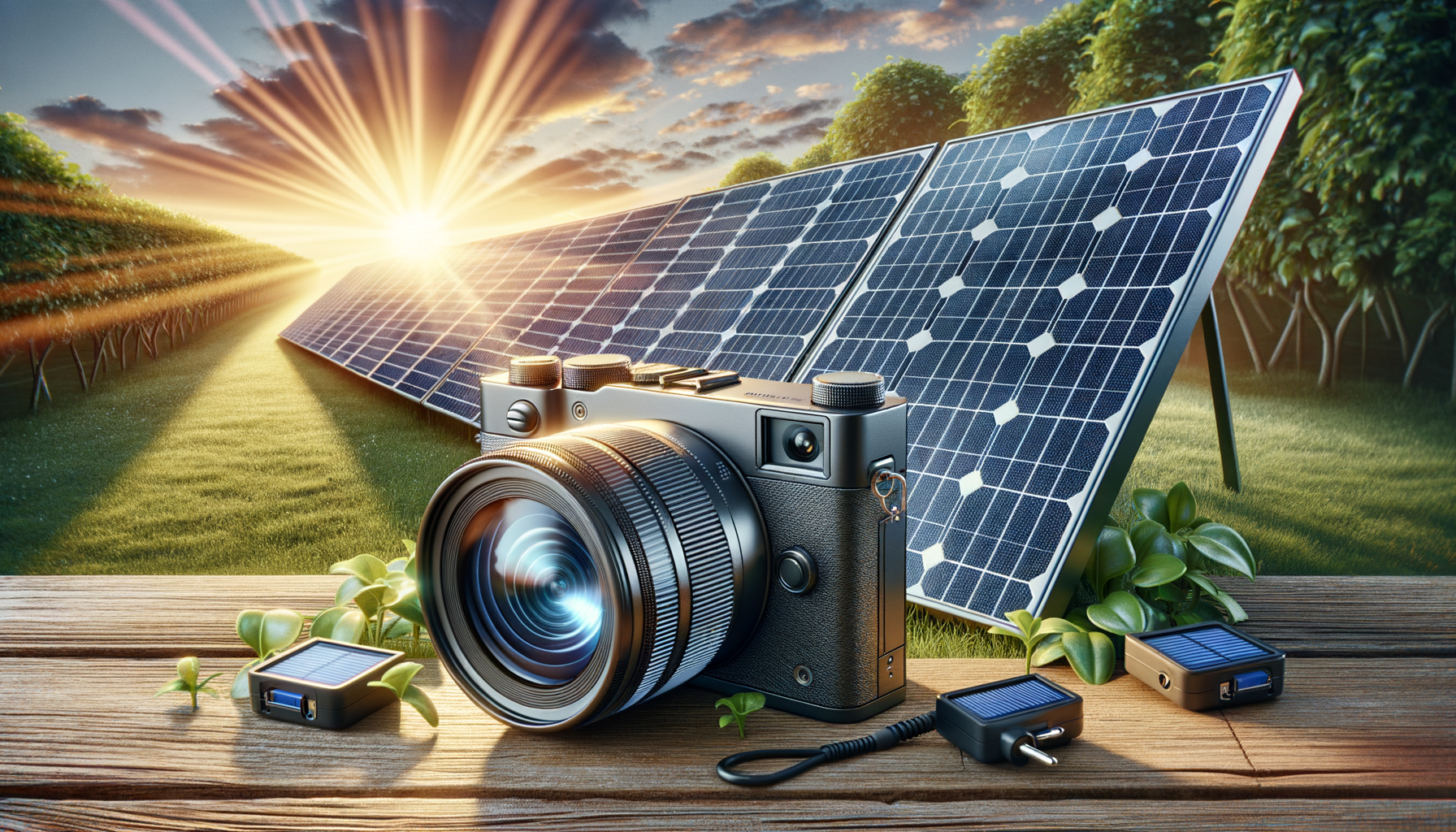Understanding Solar Cameras
Solar cameras are an innovative solution in the realm of security technology, harnessing the power of the sun to function without the need for traditional electrical sources. These devices are equipped with solar panels that capture sunlight and convert it into electrical energy, which is then stored in built-in batteries. This allows solar cameras to operate independently of the conventional power grid, making them highly versatile and suitable for various applications.
The primary advantage of solar cameras is their ability to function in remote or off-grid locations where access to electricity is limited or non-existent. Additionally, they offer an eco-friendly alternative to traditional cameras by reducing reliance on fossil fuels and minimizing carbon footprint. With advancements in solar technology, these cameras are becoming more efficient, capable of storing enough energy to operate during cloudy days and at night.
Benefits of Using Solar Cameras
Solar cameras bring a multitude of benefits to the table, making them an attractive option for many users. One of the most significant advantages is cost savings. Since solar cameras do not require a continuous power supply from the grid, they eliminate electricity costs associated with traditional security systems. This can lead to substantial savings over time, especially for large properties or businesses with extensive surveillance needs.
Another benefit is their ease of installation. Without the need for electrical wiring, solar cameras can be installed quickly and with minimal disruption. This makes them ideal for temporary setups or locations where running cables is impractical. Furthermore, solar cameras are often equipped with wireless connectivity, allowing users to monitor footage remotely via smartphones or computers.
In addition to cost and convenience, solar cameras are also known for their durability and reliability. Designed to withstand various weather conditions, they are typically housed in weatherproof casings that protect against rain, dust, and extreme temperatures. This ensures consistent performance and longevity, even in harsh environments.
Suitability of Solar Cameras for Different Users
Solar cameras are suitable for a wide range of users, from homeowners to business owners and even public sector organizations. For homeowners, solar cameras offer a straightforward and cost-effective way to enhance security without the need for extensive electrical work. They are particularly beneficial for properties in rural or remote areas where power lines may not be readily available.
Businesses, especially those with large outdoor areas such as farms, warehouses, or construction sites, can also benefit from the flexibility and scalability of solar cameras. These devices can be easily repositioned as needed, providing comprehensive coverage without the constraints of wired systems.
Public sector organizations, including parks and nature reserves, can use solar cameras to monitor wildlife and protect natural resources. The ability to operate independently of the power grid makes them an ideal choice for preserving the environment while ensuring security.
Factors to Consider When Buying Solar Cameras
When purchasing a solar camera, there are several factors to consider to ensure you make the right choice for your needs. First, assess the location where the camera will be installed. Ensure that the area receives adequate sunlight throughout the day to keep the solar panels charged. Consider the camera’s field of view and resolution to ensure it meets your surveillance requirements.
Battery capacity is another critical factor. Look for cameras with high-capacity batteries that can store sufficient energy for nighttime operation or during periods of low sunlight. Additionally, consider the camera’s connectivity options. Many solar cameras come with Wi-Fi capabilities, allowing for remote access and monitoring.
Finally, evaluate the overall build quality and weather resistance of the camera. Opt for models with sturdy, weatherproof housings that can withstand environmental challenges. By taking these factors into account, you can select a solar camera that offers reliable performance and meets your specific security needs.
Conclusion: Is a Solar Camera Right for You?
Solar cameras offer a compelling solution for those seeking a sustainable and cost-effective approach to security. Their independence from the power grid, ease of installation, and environmental benefits make them a versatile choice for a variety of settings. Whether you’re a homeowner looking to safeguard your property, a business owner seeking to secure expansive outdoor areas, or an organization aiming to monitor remote locations, solar cameras can provide the coverage and reliability you need.
By considering factors such as location, battery capacity, and connectivity options, you can make an informed decision and choose a solar camera that aligns with your requirements. As technology continues to advance, solar cameras are likely to become even more efficient and accessible, solidifying their place as a valuable tool in modern security systems.








